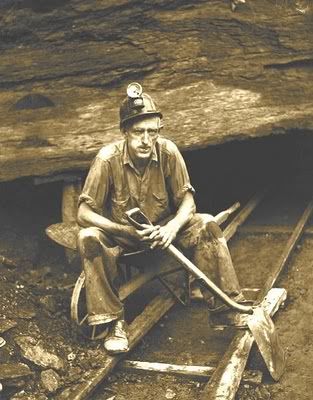Britain has such a difficult history with Unions and mines I thought it was worth looking at some other countries.
The Chilean mining accident was the result of a race for profits by mine owners – who may face criminal charges – at a boom time in the price of two metals, combined with a scandalous disregard for safety, according to trade unionists.
The government ordered the closure of the San Jose mine after deaths in 2006 and 2007, but a year later a junior official, allegedly exceeding his powers, authorised its reopening without the owners having installed a stairway in the ventilation passages. Instead, employees were sacked and non-unionised labour taken on. On 3 July this year a man lost his leg in a rockfall, and later in the month the Labour Department warned of serious safety deficiencies.
The two mine owners, Alejandro Bohn – also the mine manager – and Marcelo Kemeny, may face criminal charges after they were questioned by prosecutors. A court has embargoed £1.2m of company funds to meet possible claims arising from the disaster.
Suspicion is growing that the mine was allowed to continue working only by dint of bribery. Chile, where vast fortunes have been made from mining, has only 16 mine inspectors to look after 4,500 mines. There have been 31 fatal mining accidents this year alone.
Neglect of the law is fostered by the keen interest of successive governments to make Chile – by far the world's largest copper producer – a mining giant, outstripping its neighbour Peru. The miners are paying the price.
Meanwhile:
In the last 20 years, 4,000 Colombian trade unionists have been murdered. Each year, more union activists are killed in Colombia than in the rest of the world combined. But an atmosphere of impunity has ensured that only a tiny number of these murders have been prosecuted and the criminals brought to justice.Amnesty have a long here.
A Colombian indigenous leader explained that for his people, the earth was "la madre tierra," mother earth. "It hurts us to see the earth damaged," he said, pointing to the gaping hole of the mine. People in eastern Kentucky talked the same way about their mountains.
In the U.S.-owned Drummond mine in northern Colombia, three union leaders were assassinated in 2001. The company is currently facing a lawsuit in the United States for allegedly paying a paramilitary force to carry out the murders. Another U.S. company, Chiquita Brands, admitted to making payments for years to the paramilitaries. They claimed that they made the payments to protect their workers, but banana workers—and especially union activists—were the main victims among the hundreds murdered by paramilitaries during the 1990s and early 2000s.

With the death of 29 coal miners at the Massey Coal-operated Upper Big Branch Mine in West Virginia a few months ago, the United States has experienced its worst mine disaster in close to 40 years.






No comments:
Post a Comment